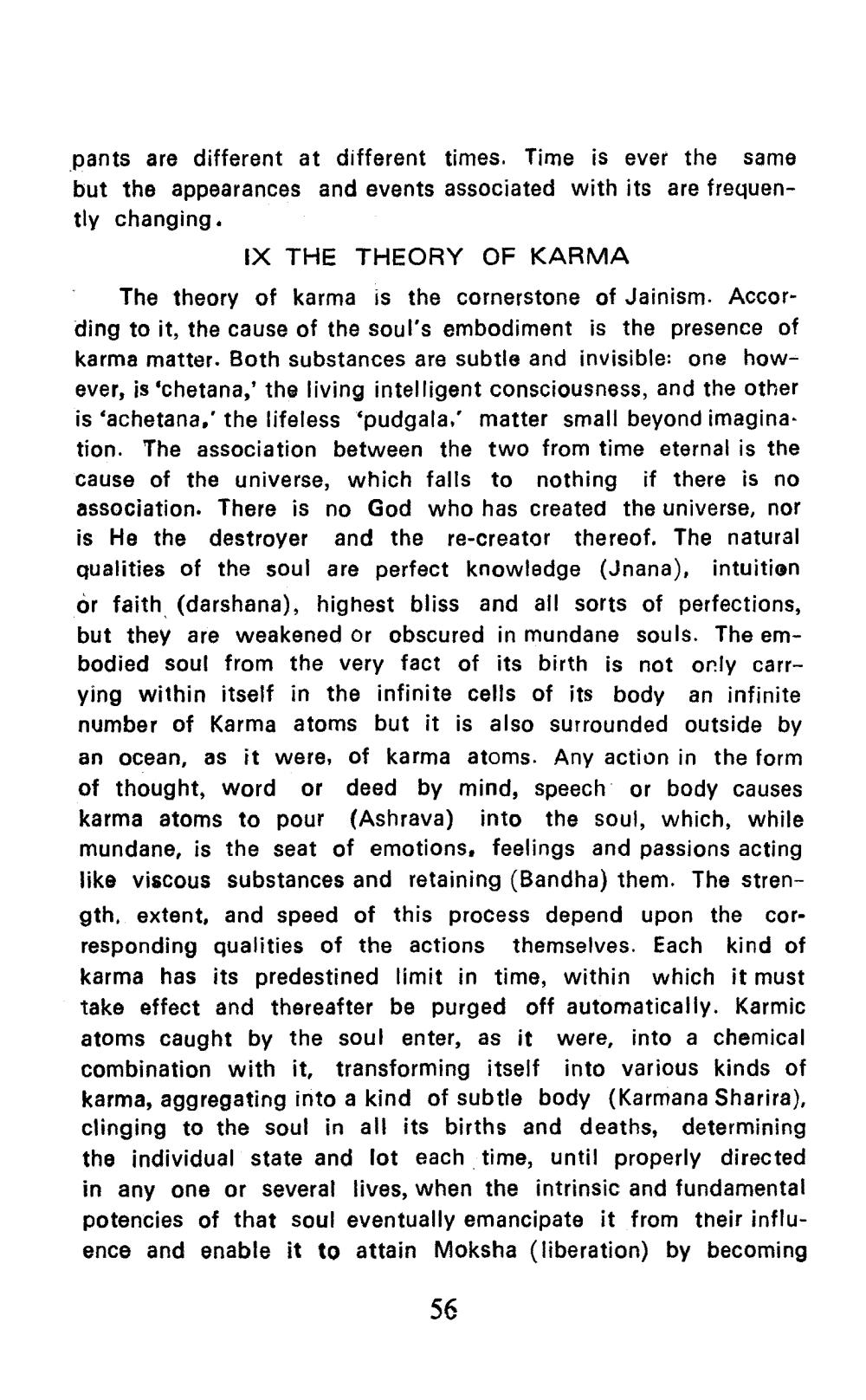________________
pants are different at different times. Time is ever the same but the appearances and events associated with its are frequently changing.
IX THE THEORY OF KARMA The theory of karma is the cornerstone of Jainism. According to it, the cause of the soul's embodiment is the presence of karma matter. Both substances are subtle and invisible: one however, is 'chetana,' the living intelligent consciousness, and the other is 'achetana,' the lifeless 'pudgala,' matter small beyond imagination. The association between the two from time eternal is the cause of the universe, which falls to nothing if there is no association. There is no God who has created the universe, nor is He the destroyer and the re-creator thereof. The natural qualities of the soul are perfect knowledge (Jnana), intuition or faith (darshana), highest bliss and all sorts of perfections, but they are weakened or obscured in mundane souls. The embodied soul from the very fact of its birth is not only carrying within itself in the infinite cells of its body an infinite number of Karma atoms but it is also surrounded outside by an ocean, as it were, of karma atoms. Any action in the form of thought, word or deed by mind, speech or body causes karma atoms to pour (Ashrava) into the soul, which, while mundane, is the seat of emotions, feelings and passions acting like viscous substances and retaining (Bandha) them. The strength. extent, and speed of this process depend upon the corresponding qualities of the actions themselves. Each kind of karma has its predestined limit in time, within which it must take effect and thereafter be purged off automatically. Karmic atoms caught by the soul enter, as it were, into a chemical combination with it, transforming itself into various kinds of karma, aggregating into a kind of subtle body (Karmana Sharira), clinging to the soul in all its births and deaths, determining the individual state and lot each time, until properly directed in any one or several lives, when the intrinsic and fundamental potencies of that soul eventually emancipate it from their influence and enable it to attain Moksha (liberation) by becoming
56




